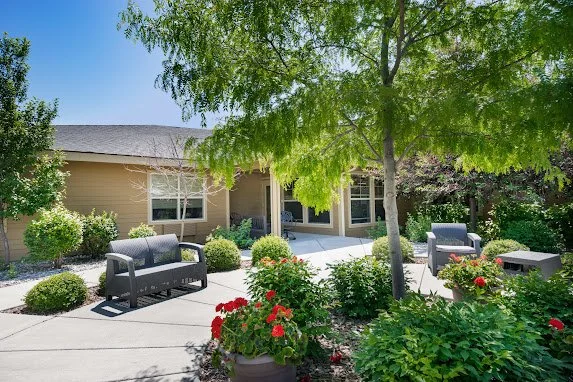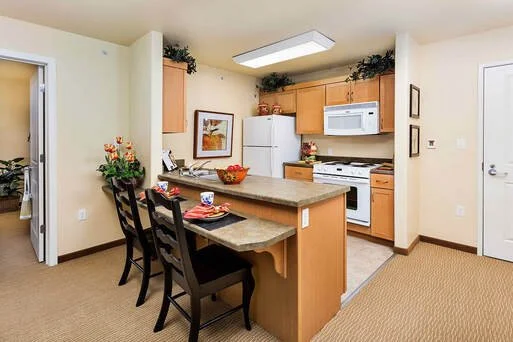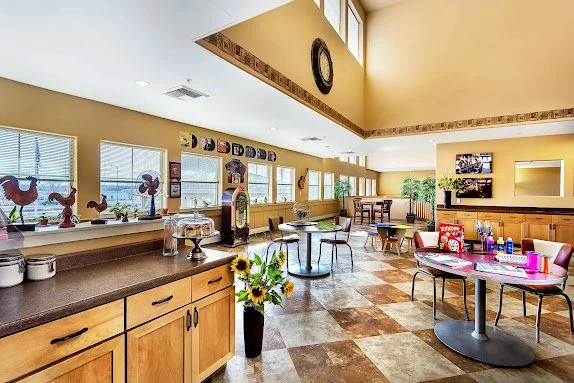Quality Senior Living at MorningStar of Billings
MorningStar of Billings is not just another senior living community. Our differences start with a foundation built on honoring God, valuing seniors and investing generously as we proudly serve those who first served us. We also have a team that is empowered in the MorningStar culture of Radiance, which emphasizes customer service excellence and development of true servant-leadership. These devoted staff members understand the rewards of working with seniors and love the ways in which they learn from them.
Along with their efforts to enhance quality of life for residents, our community offers a full array of resort-style amenities and activities. These include a wide range of fun and/or meaningful ways to stay engaged each day. From enjoying a movie, working on a craft in the life enrichment room or flexing your brains in a competitive game of cards, MorningStar of Billings is the perfect place to comfortably age in place.
All-day, restaurant-style dining means you can follow your own schedule. Grab a quick lunch or sit long over a relaxing meal in your choice of venues. At MorningStar we feel breaking bread together offers far more than physical nutrients – it helps to bond us together as family and friends.
We also have options to help keep physical fit. Our fitness center has a range of machines and weights; or join our many exercise classes which are both fun and invigorating. Afterwards, enjoy a spa bath.
Our scheduled transportation means it is easy to get to and from important medical appointments. Moreover, MorningStar’s group outings include trips to restaurants, shopping and other venues. To meet your spiritual needs, services are available. In other words, throughout the day; meaningful wellness programs, activities and entertainment keep you as busy as you like.
For those with Alzheimer’s and other dementia-related diseases, our distinct Reflections Neighborhood provides all-inclusive care. As part of our commitment to provide security and safety for our most tender residents, we utilize Safely You technology to help detect and prevent falls for memory care residents with Artificial Intelligence (AI).
To learn more about our community, we invite you to visit our website to browse through our extensive content regarding cottages, suites, amenities and programs. You will find reviews from residents and their families as well as background on MorningStar Senior Living’s philosophy and mission. If you like what you see, please contact us to set up a personalized tour on our assisted living.
MorningStar takes tremendous pride in the reputation we have earned for excellence and authenticity since our inception in 2003. We believe the human capacity to grow, to learn and to contribute is ageless; and we act upon that truth daily, as we care for, inspire, and love the residents under our roof. Contact us for more information about the finest memory care in Billings, MT.






